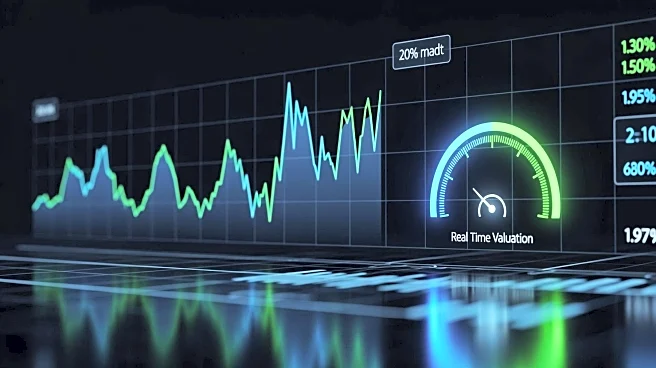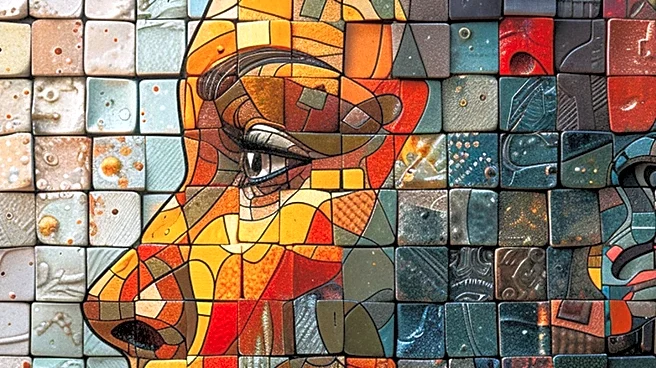What's Happening?
Edgar Wright's new film, 'The Running Man,' is a remake of the 1987 movie, aligning more closely with Stephen King's original book. The film explores a dystopian future where human suffering is commodified
as entertainment, reflecting societal issues such as government control and economic disparity. The storyline follows Glen Powell's character, Ben Richards, as he navigates a world dominated by a powerful entity known as 'the Network.' The film critiques the influence of media and the ruling class, represented by characters like Dan Killian, played by Josh Brolin. The movie is one of the first to feature the logo of Trump-friendly billionaire David Ellison's Paramount Skydance.
Why It's Important?
The remake of 'The Running Man' is significant as it mirrors current societal concerns about media influence and economic inequality. By highlighting the commodification of human misery, the film prompts discussions on the ethical implications of entertainment and the power dynamics within society. It serves as a critique of how media can manipulate public perception and maintain the status quo, encouraging viewers to reflect on their own consumption habits. The film's release underlines the growing trend of using dystopian narratives to address real-world issues, potentially influencing public discourse and policy considerations.
What's Next?
The film's release may spark conversations about the role of media in shaping societal values and the ethical responsibilities of content creators. It could lead to increased scrutiny of media conglomerates and their influence on public opinion. Additionally, the film might inspire other filmmakers to explore similar themes, contributing to a broader cultural dialogue about the intersection of entertainment and societal issues. As audiences engage with the film, there may be calls for more transparency and accountability in media practices.
Beyond the Headlines
The film's portrayal of a dystopian future raises questions about the long-term impact of media on societal structures and individual behavior. It challenges viewers to consider the consequences of unchecked media power and the potential for technology to exacerbate existing inequalities. The narrative also touches on themes of resistance and the human spirit's capacity to challenge oppressive systems, offering a hopeful perspective amidst the critique.









